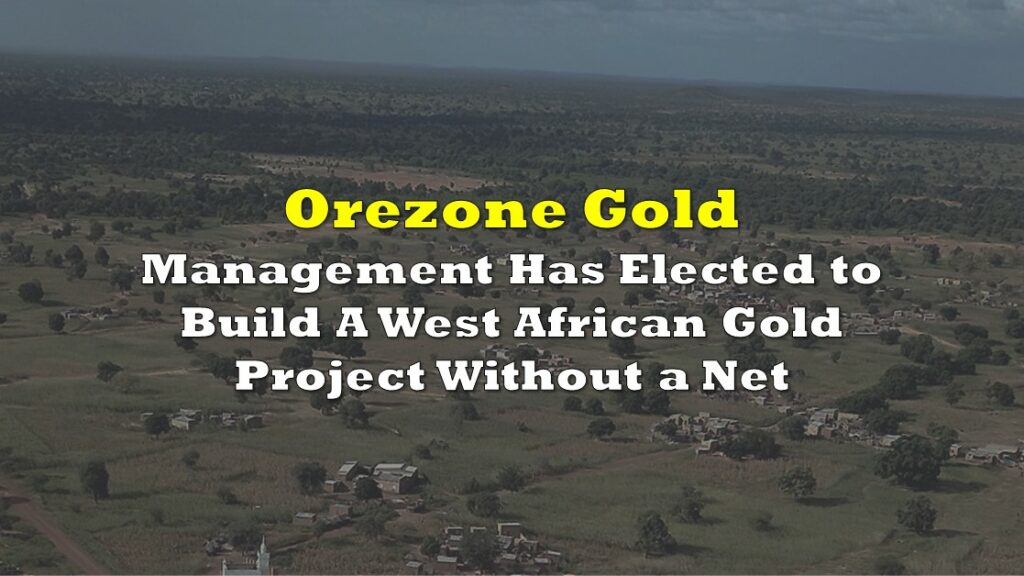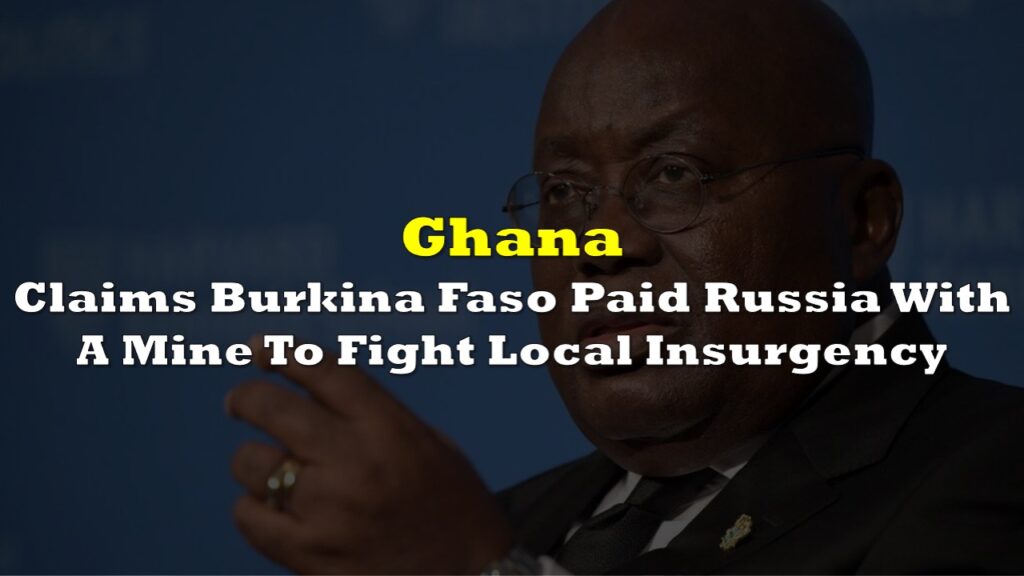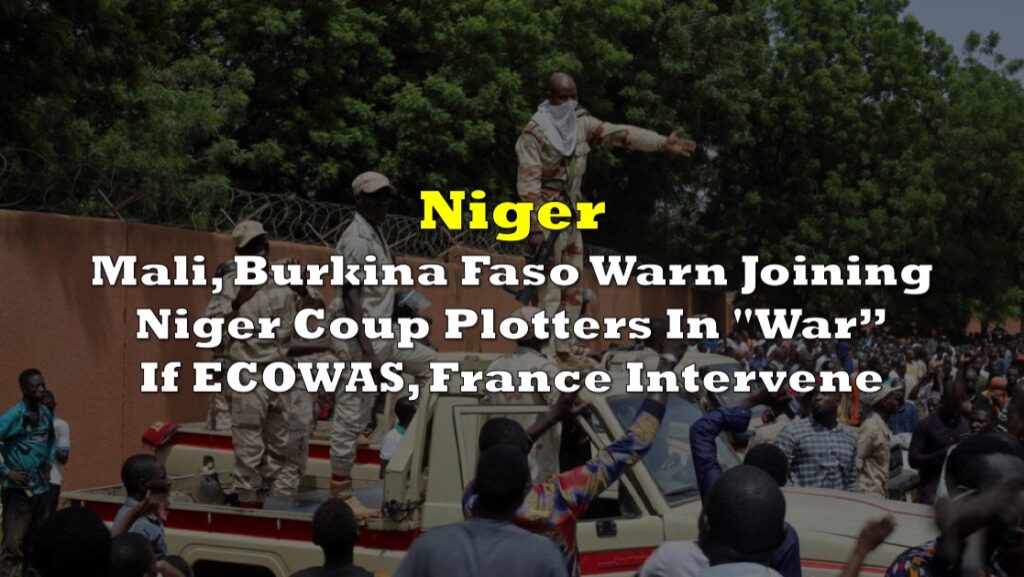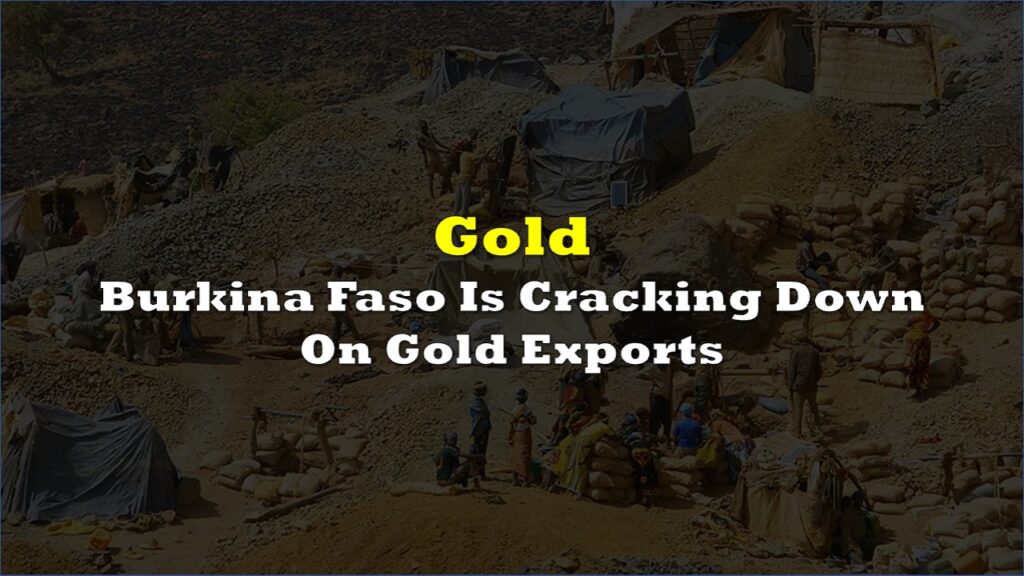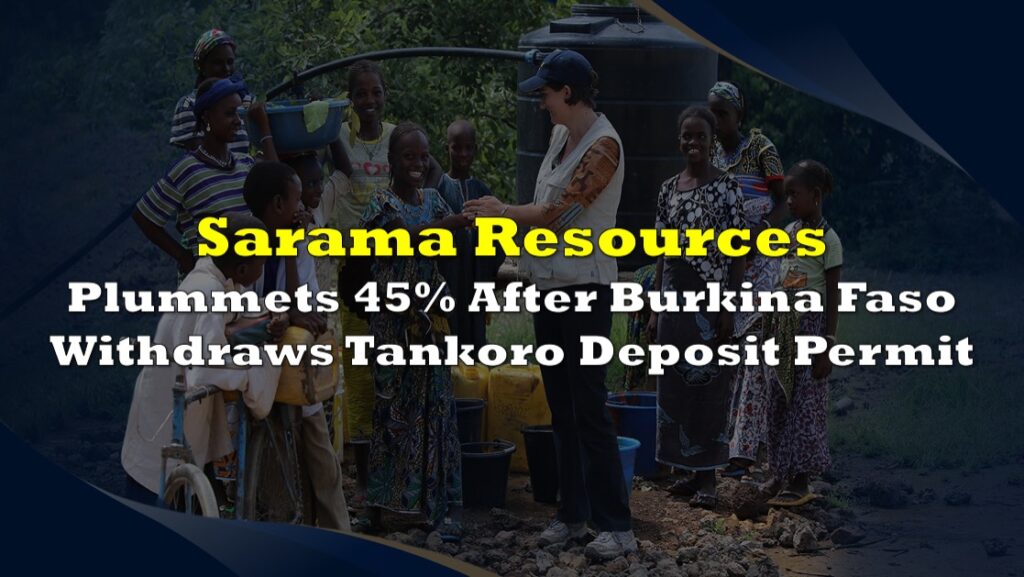In the latest turn of events in Burkina Faso, junta leader President Ibrahim Traoré announced plans to withdraw mining permits from some foreign companies, sparking widespread attention from international mining corporations operating within the country. The announcement, made during a radio address, coincided with the two-year anniversary of Traoré’s rise to power following a coup in 2022.
While Traoré did not specify which companies would be affected, the country’s plans to produce more of its own gold underscore a broader shift toward nationalizing foreign-owned assets.
Since seizing power, Traoré’s government has progressively distanced itself from Western allies, instead aligning more closely with Russia. This pivot reflects a broader trend across several African nations, which have sought to reassess relationships with global powers, often expressing frustration over perceived exploitation by Western entities.
In Burkina Faso’s case, gold is the main export, and the nation is home to several large-scale foreign mining operations.
Speaking to Radio Burkina, Traoré made clear the government’s intent to take greater control over the country’s gold resources: “We know how to mine our gold and I don’t understand why we’re going to let multinationals come and mine it,” he declared. “In fact, we are going to withdraw mining permits.”
These remarks have stirred concern within the international mining community, given that Burkina Faso hosts a variety of foreign mining companies, including London-listed Endeavour Mining, Russia’s Nordgold, Canada’s Orezone, and Australia’s West African Resources.
Assurances Amid Uncertainty
In the wake of Traoré’s comments, several companies operating in Burkina Faso issued statements aiming to reassure shareholders and the broader public that their operations were not under immediate threat.
Endeavour Mining (TSX:EDV), which operates several mines in Burkina Faso, confirmed on October 7 that the government had not revoked any of its permits. The company emphasized its strong relationship with the state, citing a recent settlement agreement that included a $30 million payment for the divestment of its Boungou and Wahgnion mines.
Endeavour, which describes itself as a “trusted partner to the government,” noted it was unaware of any plans to revoke its licenses and stressed its continued compliance with local regulations. The company last year produced 454,000 gold ounces across two mines in Burkina Faso.
Stockholm Syndrome: It's a helluva drug. $EDV.to #BurkinaFaso #gold #mintwit pic.twitter.com/5RWhUxmwLE
— Mark (@Mark_IKN) October 7, 2024
Fortuna Mining (TSX: FVI), another major player in the region, also clarified that it had sought and received confirmation from the Ministry of Mines that there were no immediate plans to cancel its permits. Fortuna operates the Yaramoko mine, which has been in operation since 2016 and is projected to contribute around 25% of the company’s gold output in 2024. Last year, the mine produced 117,711 gold ounces.
Similarly, IAMGOLD (TSX: IMG) expressed confidence in the ongoing validity of its operations in the country. The company pointed out that its Essakane mine, one of the largest in the region with forecasted 2024 production between 330,000 and 370,000 ounces, was in full compliance with Burkina Faso’s laws.
The mine continues to operate securely, and IAMGOLD recently received a dividend payment approved by the government, underscoring the stability of its position.
Orezone Gold Corporation (TSX: ORE) joined the chorus of reassurances, confirming that the government had no plans to withdraw the permit for its Bomboré mine, which last year produced 141,425 gold ounce. The company reiterated that the government’s focus was on companies that were not compliant with the law.
West African Resources saw its stock rise by as much as 11% following assurances from the Burkina Faso government that none of the miner’s permits were under review, easing fears of potential disruptions.
West African Resources $WAF shares jump as much as 11%, the most since March 2021, after Burkina Faso officials confirmed the gold miner’s permits remain in good standing and none of them are under review by the government.
— CommSec (@CommSec) October 7, 2024
Escalating Tensions in a Troubled Region
Despite the reassurances from mining companies, industry experts remain cautious. The rapid policy shifts in Burkina Faso follow a familiar pattern in regions where resource nationalism—efforts by governments to assert greater control over natural resources—has gained momentum.
Ben Kramer-Miller, an industry analyst, remarked that foreign companies should not be complacent, drawing comparisons to the abrupt nationalization of foreign assets in Russia.
“For those of you who are confident in Burkina Faso mining investments given the barrage of ‘our permits are unaffected’ PRs… a friendly reminder that Kinross’ Russian operations were just fine, until they weren’t,” Kramer-Miller warned.
For those of you who are confident in Burkina Faso mining investments given the barrage of "our permits are unaffected" PRs over the past 15 hrs., a friendly reminder that Kinross' Russian operations were just fine, until they weren't a week later $ORE.to $EDV.to $WAF.ax pic.twitter.com/93QAPkHObs
— Ben Kramer-Miller (@TheWealthMiner) October 7, 2024
Security in Burkina Faso also remains a pressing concern. Traoré’s junta came to power amid growing unrest over the government’s failure to contain extremist violence linked to Al-Qaeda and Islamic State affiliates.
Despite promises to restore order, violence surged in 2023, with over 8,000 people reportedly killed according to U.S.-based conflict-monitoring group ACLED. The instability has further complicated the operations of foreign companies in the region.
Traoré’s comments about the country’s mining sector come just weeks after a symbolic agreement with Russia. On September 29, 2024, Russian Foreign Minister Sergey Lavrov visited Burkina Faso and signed an agreement with the government on the “non-use of weapons in space,” a move that was widely seen as symbolic rather than substantive. However, the visit underscored the strengthening relationship between Burkina Faso and Russia, furthering speculation that Russian interests may play a role in the future of the country’s mining sector.
Lavrov shows up in Burkina Faso in September. Signs some pronoun level silliness. Leaves. Government announces intent to nationalize foreign capital assets. Notice a trend? Given how terrible of an ally the West has been to Africa, I can hardly blame Traore. https://t.co/PJKUrr5ImD
— The Mining Bartender (@jtourzan) October 6, 2024
Lavrov’s visit was met with skepticism internationally, particularly given the tenuous relationship between Western governments and Traoré’s regime. While Burkina Faso’s pivot towards Moscow may seem perplexing to some, observers like independent commentator The MIning Bartender noted, “Given how terrible of an ally the West has been to Africa, I can hardly blame Traoré.”
For now, the focus remains on which mining companies will lose their permits—if any—and how the government plans to manage its push toward greater control over its gold resources. As international companies reiterate their compliance with local laws, the broader economic landscape of Burkina Faso remains uncertain.
Information for this briefing was found via the sources mentioned. The author has no securities or affiliations related to this organization. Not a recommendation to buy or sell. Always do additional research and consult a professional before purchasing a security. The author holds no licenses.





